From the Chicago Reader (November 1, 1987). — J.R.
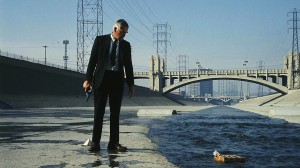
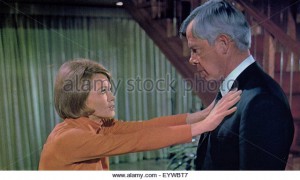
John Boorman’s modernist, noirish thriller (1967) is still his best and funniest effort (despite the well-phrased demurrals of filmmaker Thom Andersen regarding its cavalier treatment of Los Angeles). Lee Marvin, betrayed by his wife and best friend, finds revenge when he emerges from prison. He recovers stolen money and fights his way to the top of a multiconglomerate — only to find absurdity and chaos. Boorman’s treatment of cold violence and colder technology has lots of irony and visual flash — the way objects are often substituted for people is especially brilliant, while the influence of pop art makes for some lively ‘Scope compositions — and the Resnais-like experiments with time and editing are still fresh and inventive. The accompanying cast (and iconography) includes Angie Dickinson, John Vernon, and Carroll O’Connor; an appropriate alternate title might be Tarzan Versus IBM, a working title Jean-Luc Godard had for his Alphaville. 92 min. (JR)
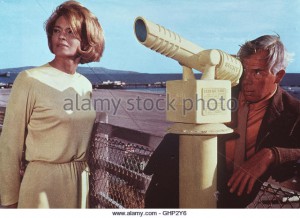
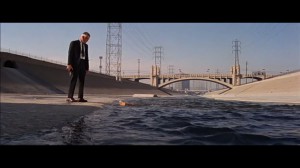 Read more
Read more
From the Chicago Reader (December 9, 1994). — J.R.
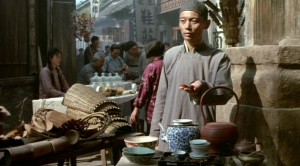
With this epic account of a Chinese family from the 40s to the 70s, Zhang Yimou seems to have abandoned the high aestheticism of his Red Sorghum, Ju Dou, and Raise the Red Lantern for a more popular and didactic kind of filmmaking (The Story of Qiu Ju can be seen as a transitional work). To Live (1994, 125 min.) is masterful in its own right, and filled with so many barbs at the Cultural Revolution and its immediate aftermath that Zhang was forbidden to make any films in China with foreign financing for two years (though the stated charge against him was illegal distribution of this film). Adapted by Yu Hua and Lu Wei from Yu’s novel Lifetimes, the film focuses on a wealthy gambling addict (comic actor Ge You) with a pregnant wife (Gong Li) and young daughter who loses his family’s fortune and becomes a shadow puppeteer shortly before civil war erupts; ironically, it’s his recklessness as a gambler that eventually saves him from execution, the first of many sociopolitical paradoxes the movie has to offer. Some of the story’s details recall Farewell My Concubine and The Blue Kite, but Zhang has his own story to tell and his own points to make. Read more
From the Chicago Reader (October 31, 1995). — J.R.
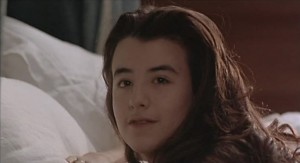
A lot of talented people are involved in this atrocity in one way or another — not only French poets Arthur Rimbaud and Paul Verlaine, whose doomed relationship forms the core of the plot, but writer Christopher Hampton, director Agnieszka Holland, and lead actors Leonardo DiCaprio (Rimbaud), David Thewlis (Verlaine), and Romane Bohringer — so it’s hard to know who to blame. I suspect that Hampton is the guiltiest party: piling on the lurid, middlebrow, middle-class shock values inherent in the material, and jettisoning practically all the poetry of both writers, he comes up with a script that’s well-nigh impossible to transcend. This isn’t exactly boring, but for anybody who cares about these actors and much of the earlier work of Holland, it’s a painful lesson in how far gifted people can go in deluding themselves. (JR)
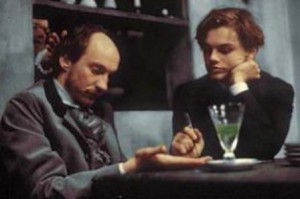 Read more
Read more
From the Chicago Reader (October 28, 1994), subsequently updated a little. — J.R.
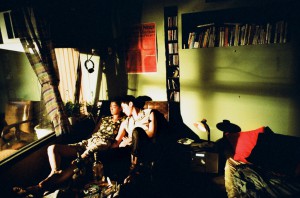
An immensely charming and energetic comedy (1994, 97 min.) by Wong Kar-wai, one of the most exciting and original contemporary Hong Kong filmmakers. Though less ambitious than Days of Being Wild (1990) or Ashes of Time (1994) and less hyperbolic than Fallen Angel (1995), this provides an ideal introduction to his work. Both of its two stories are set in present-day Hong Kong and deal poignantly with young policemen striving to get over unsuccessful romantic relationships and having unconventional encounters with women (a mob assassin and an infatuated fast-food waitress respectively). Wong’s singular frenetic visual style and his special feeling for lonely romantics may remind you of certain French New Wave directors, but this movie isn’t a trip down memory lane; it’s a vibrant commentary on young love today, packed with punch and personality. In Cantonese and Mandarin with subtitles. (JR)
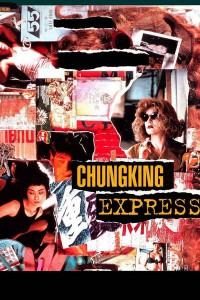 Read more
Read more









